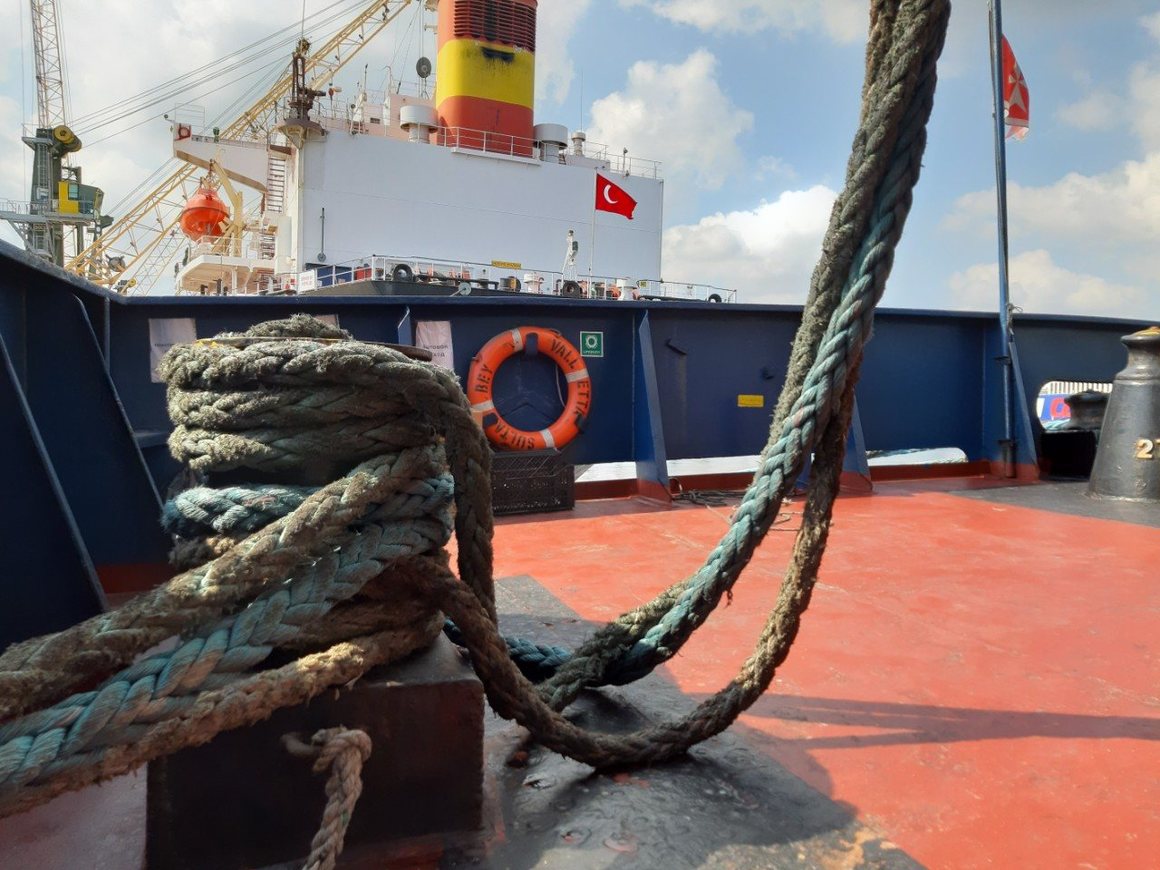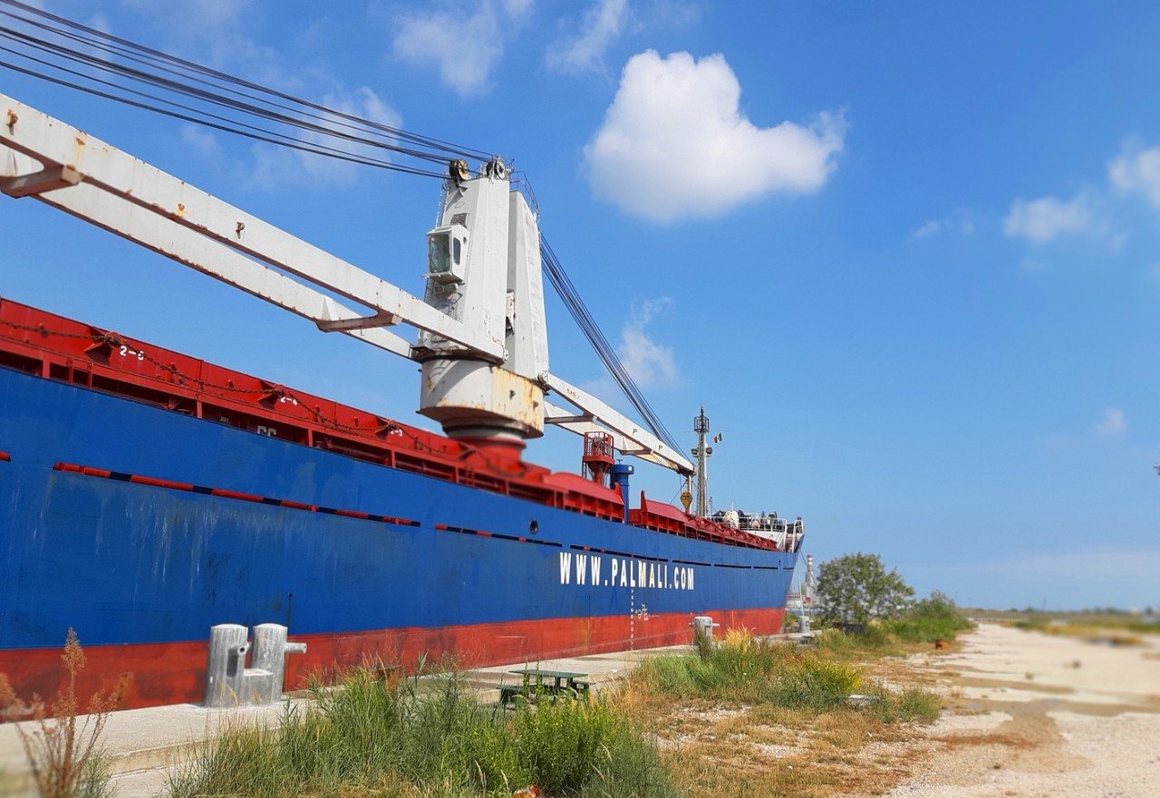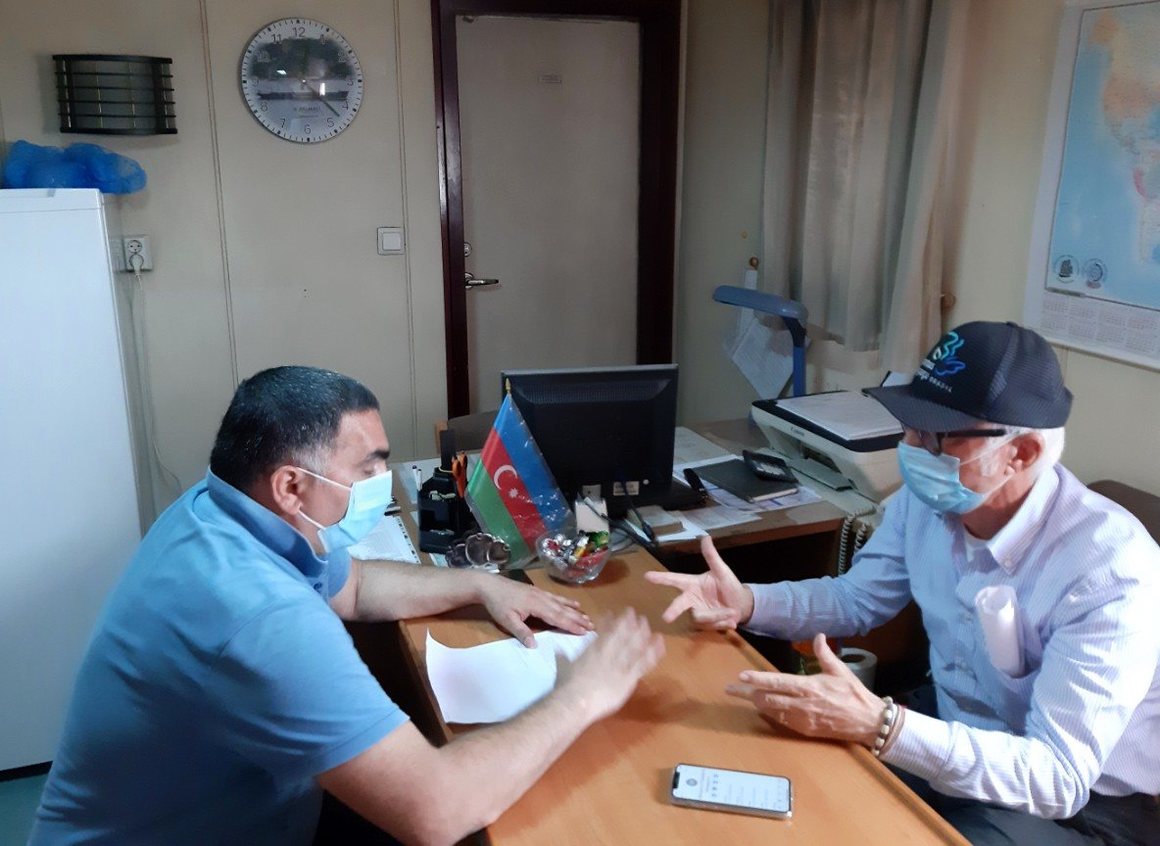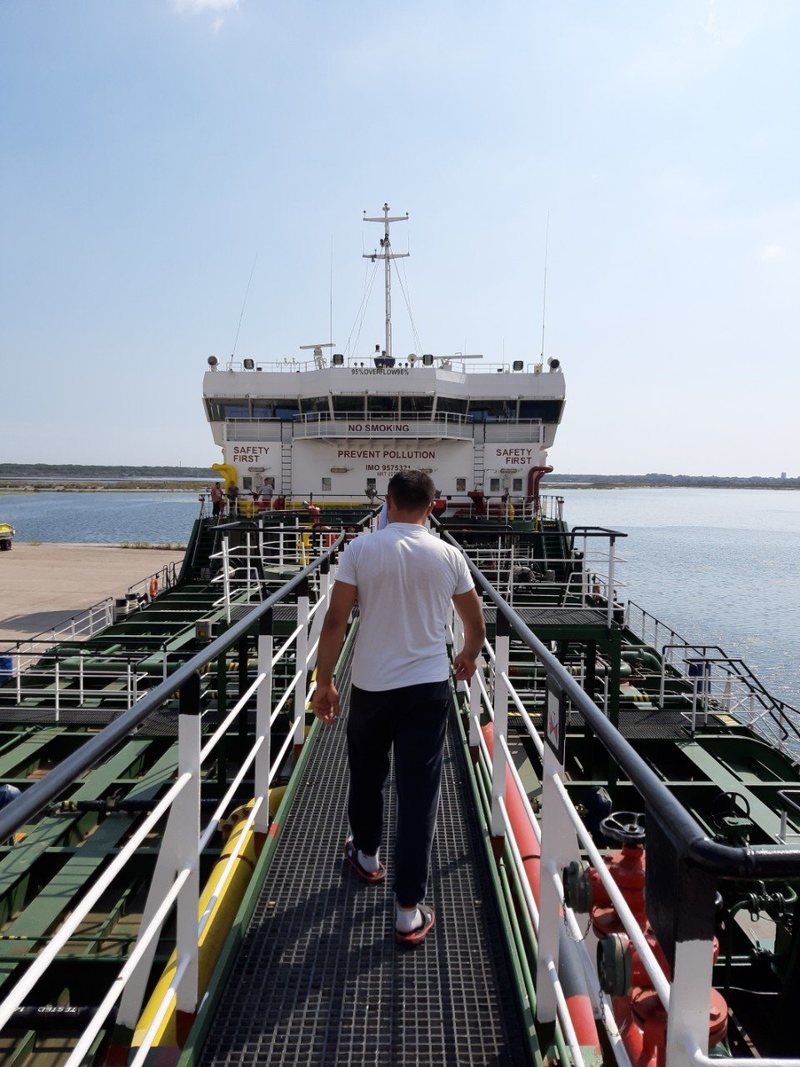When Ships Are Abandoned, Stuck Sailors Struggle to Get By—and Get Paid
When Captain Alexander Ovchinnikov took over command of the ship Gobustan in Istanbul, the term “COVID-19” hadn’t been coined yet, “quarantine” was the stuff of apocalyptic science fiction, and few people outside of China knew where Wuhan was. It was December 25, 2019. Ovchinnikov, 39, was still on that ship through the summer, along with 11 other crew members: The second engineer was Russian too, the cook was Ukranian, and the rest were from Azerbaijan. At least one had been on board since October 2019, and none of them had received a salary since January. The crew of Gobustan had been stuck since June 16 in the Italian port of Ravenna, on the Adriatic Sea. “We live like in prison. We get up, have breakfast, do some routine activities, then we have dinner and go to bed,” said Ovchinnikov. Their days were all the same and the stillness was shaken only by cleaning and maintenance activities. Sure enough, the ship was clean as a whistle.
A few hundred yards away, another vessel, Sultan Bey, captained by Eldur Abdurakhmanov, 42, of Azerbaijan, had been in the same situation. The ship is smaller than Gobustan, but both fly the Maltese flag and, more importantly, are owned by the same company, Palmali Holding. This large Turkish-Azerbaijani shipping company sank into a deep financial crisis after the arrest of its founder and owner, Mübariz Mansimov Gurbanoğlu, on March 15, 2020.
In the Mediterranean Sea there are now more than 15 Palmali ships stuck in ports, as if in suspended animation, having been seized by creditors. Many of them still have sailors aboard. In Italy there are five: the two in Ravenna, plus two in Sardinia (General Shikhlinsky and Khosrov Bey) and one near Venice, Zeinabaldyn Tagiyev. In Beirut, several sailors of Captain Nagdaliyev have been stuck since May 12—just half a mile from the giant warehouse explosion that rocked the Lebanese capital on August 4, 2020. And the origin of that disaster was yet another ship abandoned by its owner, Rhosus, which had arrived in Beirut in 2013 with a cargo of 2,750 tons of ammonium nitrate and a ballast of debt. The Rhosus crew was trapped for a year before they were released. The cargo went into a warehouse and the ship itself sank to the bottom of the harbor. That cargo later fueled the largest non-nuclear, human-made explosion in history.
According to the International Maritime Organization database, since 2004, 438 ships have been abandoned worldwide, and with them more than 5,700 sailors. The reasons are almost always the same: shipowners, mired in financial difficulties, simply disappear. Commercial ports, often far from city centers, inaccessible to unauthorized personnel, and in some cases rife with corruption, are like parallel worlds. When crews are stranded in financially strapped countries or in war zones, the sailors are at risk of plunging into desperate poverty, outside of the view of the world.
The men on board Gobustan and Sultan Bey experienced a muted view of pandemic lockdown. Being isolated already, they faced very little chance of infection, but their lives were still disrupted. They couldn’t set sail, and they couldn’t even set foot on the ground since April, both because they are not citizens of the European Union and because ports are limiting the number of permits due to the pandemic. “Since the outbreak of the epidemic we can no longer move from here. It is very important for a sailor to go ashore every now and then, to eat something different, to take a walk,” said Ovchinnikov. “We are satisfied with little, but even that little is impossible today.”
The owner of the ships, the Azerbaijan-born Gurbanoğlu, was one of the richest men in Turkey, at least until he was arrested after having been accused of participating in the failed coup against Turkish president Recep Tayyip Erdoğan in 2016. Gurbanoğlu claims to be the victim of a conspiracy, but the sailors cared little for these “land stories.” They all said the same thing: “We just want to get paid. And then go home.” Ovchinnikov wanted to return to his small town on the Don River, which flows into the Sea of Azov and take his girlfriend out to dinner. Azar Babayev, 55, Sultan Bey’s chief engineer, had been working on ships for 30 years, but he had never been away from his home in Baku, Azerbaijan, for so long. He hadn’t seen his two sons for more than a year. “When I come back, I will spend the two weeks of quarantine sleeping in bed,” he joked. “Then I will go for a walk together with my family.”

“After 10 months on board, what should I do? Go back to Baku and tell my wife and children ‘I’m sorry, but I haven’t brought any money home?’ No way. I will only leave when someone brings me my money,” said Jalal Mammadov, chief officer of Gobustan. But that’s a difficult plan. Carlo Cordone is a man whose task is to try to make the sailors understand that.
If the 26 people on board the two ships in Ravenna had food to eat, water for drinking and washing, and access to internet and television, it was thanks to people like Cordone, president of the Ravenna Seafarers Welfare Committee, a former sailor with a volcanic character. In addition to not paying salaries, Palmali was not providing water, food, or the fuel necessary to run everything on the ship, from electricity to running water. Almost $60,000 had been provided to supply Sultan Bey. Cordone raised this money by asking for donations from city hall and charities, and drawing funds from the Port Authority and other institutions. Thousands more had gone to supply Gobustan as well.

“But you can’t go on like this. You can’t live on charity forever. The seafarers must do only one thing: Ask for the seizure of the ship for their unpaid wages, get it from the judge, and go home,” Cordone explains, often interrupting the conversation to take one phone call or another. “They must rest assured about this, I tell them every day. As soon as the ship is sold at auction, they will be the first to be compensated. But it can take a year, to be optimistic.” However, as he knows, sailors are not easy to convince. In Venice and Oristano, where charities and local authorities have been ensuring the survival of abandoned crews at their own expense, the sailors do not want to leave without the money they’re owed. All of the crews stuck in Italian ports are also assisted by Paolo Siligato, an inspector from the International Transport Workers Federation (ITF), the international union for seafarers.
On Gobustan, even as Palmali offered to pay for 1,320 gallons of fuel, the men on board were willing to sign the document to begin the seizure—at least until Palmali made them an offer. They would get four months of back pay—less than half of what they were owed—and could go home, with no ability to ask for any more of their lost salary. In October, they took the deal.

The seafarers on Sultan Bey, on the other hand, were less combative or resentful toward the shipowner. “That’s because they had less arrears,” says Cordone. The crew, after loading sunflower seeds in Reni, Ukraine, went on strike in Istanbul at the end of June because Palmali had already failed to pay $106,000 owed to them. The owner of the cargo—not Palmali—had gone ahead and paid the seamen to see the goods delivered, and then started the process of seizure to recoup its funds. So those on Sultan Bey were owed less, but they still held their ground, and only at the end of October they signed the seizure papers and were allowed to return home to await their full missing wages. “Someone even told me that he [was] willing to stay even without electricity on board,” Cordone says. “Do they want to eat canned meat with a candle on their head? I will never allow that: Their dignity is in first place.” He had finally managed to convince the crew.
This was not the case for the 12 men originally aboard Captain Nagdaliyev, stranded in Beirut and owed $250,000 in wages. For 10 days the crew was without fuel and food. Asked via Whatsapp how they managed, one sailor replied, “It’s very simple: We started fishing and then we cooked using the coal we had on board.” But they couldn’t wash themselves because they were without generators, so the pumps didn’t work. The explosion on August 4 made their mood worse. “That day I thought the end of the world had come,” the sailor continued. “Since then the port has been militarized, we live in a state of strong psychological discomfort and we want to leave.”

The two Russians and the 10 Azerbaijanis aboard Captain Nagdaliyev finally got some help, and variety in their diet, from the ITF, which paid for a supply of food, water, and fuel for at least a few days. “The shipowner was responsible for these men. It is a scandal that he ran away and abandoned them,” says Mohamed Arrachedi, network coordinator for the Arab world and Iran for ITF. “The flag country, Malta, also has obligations to them, but it keeps telling us that it is dealing with it and so far we have seen nothing concrete.” Currently in Bilbao, Spain, Arrachedi explains on the phone that it would not normally be the task of the ITF to supply the crews, but has done so “for humanitarian reasons,” and that after the explosion in Beirut, “The sailors are more worried than before because they see that there is a state of emergency around them. Even just to bring drinking water on board, you have to refuel outside, because there is not drinking water in the port.” Most recently, eight of the sailors were allowed to leave, while four had been required to stay on the ship so that it would not be completely unmanned.
The presence of the ITF in this part of the world, where some countries do not allow union activity at all, “is very recent and when a crew contacts me, often the situation is already very serious, therefore more difficult to solve.” Arrachedi’s goal is the same as Cordone’s: to get the seizure of the ship from a judge, send the sailors home, and then get them their money, maybe in a year or two.
Meanwhile, in Ravenna, Cordone continues to curse the bureaucracy—he is now struggling against the jungle of rules and obligations surrounding the pandemic, which complicates even putting the sailors on a plane to take them home. He, Arrachedi, and many others like them will continue to work hard to provide hope for the seafarers abandoned by their employers, ignored by governments, and seemingly forgotten by the world.





